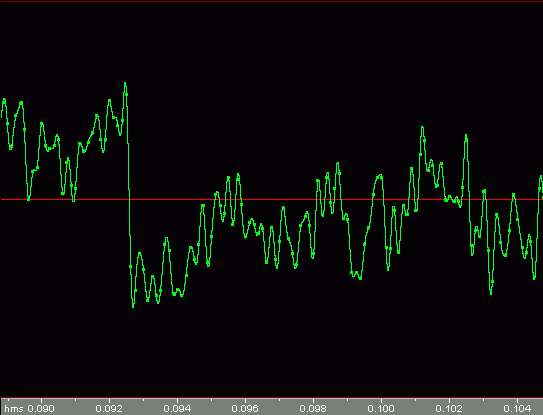Hiya, people! Yeah, I know we already talked about waves, but think about it...there's always new things to learn, even if you don't wanna learn them...like math. So now we're going to learn about wave properties. We're going to be learning about things that I don't know about, but to save you time, I'll look it up, and we'll both learn something with you doing absolutely nothing! Let's get started!
So, my (sorta) friendly friends, let's start with some definitions:
- Frequency: is the amount of waves that pass a given point in a second. Measured in hertz.
- Wavelength: the distance a wave travels in one cycle. Measured by finding the distance between two crest or two troughs.
- Amplitude: the distance between the midpoint of the wave and the crest.


 |
| Extremely Informative Picture That Must be Given a Reward for Giving Me a Break Which No Teacher Seems Willing To Do |
Did you know that a wave with a large amplitude is more likely to damage your hearing than a wave with a low amplitude? This is because the larger the amplitude, the louder the sound, so it makes sense that the higher the amplitude, the more likely it is to damage your hearing. So Katie's music has a really high amplitude, because we can hear the music through her headphones!
SORTA 'FUN' FACT...KINDA...NOT REALLY...: The speed of a wave can be determined by the formula speed equal distance divided by time, or, more simply, speed=distance/time. P.S. The reason I said it wasn't a fun fact is because who wants math when learning science?
Now, have you eber gone to see fireworks on the fourth of July? And have you eber noticed that you always see the fireworks and then you hear it and it's like BA BOOM! Eber wonder why? Some of you might know this already, but even if you do, too bad. Okay, so the reason you see a firework before you hear it is because light travels faster than sound, at approximately...oh, 299,792,458 meters per second. The speed of sound is 340.29 meters per second. Light travels almost one million times faster than sound, so it makes sense that it reaches you first, yes?




 Speaking of the speed of light and sound, why is it that sound waves travel at a different rate vs. another wave like light? Well, what do you know about sound and light waves? Sound waves are disturbances in the air, which, as you should remember, is made of atoms. Light, however, can travel though millions of miles of dead space...which has no atoms. Cool, yeah? Anyway, sound travels at a different rate than light because light is made up of electromagnetic energy that doesn't depend on the type of medium it moves through, unlike sound wave, which do depend on the medium, and that's what makes it a mechanical wave.
Speaking of the speed of light and sound, why is it that sound waves travel at a different rate vs. another wave like light? Well, what do you know about sound and light waves? Sound waves are disturbances in the air, which, as you should remember, is made of atoms. Light, however, can travel though millions of miles of dead space...which has no atoms. Cool, yeah? Anyway, sound travels at a different rate than light because light is made up of electromagnetic energy that doesn't depend on the type of medium it moves through, unlike sound wave, which do depend on the medium, and that's what makes it a mechanical wave. Another thing that I thought was interesting was the difference between sound and pure noise. Didn't know there was a difference? Well, I didn't either. Sound is incredibly important, and it is one of the five sense humans and animals use to determine the surroundings of a living thing even if you can't see. Sound is a vibration that travels through air and water. A lot of sounds are too high pitched or too low pitched for the human ear to hear. Almost everything creates a sound, even though we may not hear it. Sounds come in many forms: it can be from music, speech, and other things like film dialogue. A major thing to do with this is that we can increase or decrease the volume depending on our tastes with radio, television, movies, and other things made by man.

However, noise is a horrible, irritating, and annoying sound, because in noise, different sounds are mixed together in a wild manner. It is really hard for the ear to create sense of the sounds that it hears from noises. If a person receives too much, noise can be deafening and extremely unhealthy for a person to what a lot of people call 'noise pollution.' Sound and noise are viewed differently, usually with sound looked at as something that causes pleasure. But when sound gets too loud or combines with other sounds, that's when noise comes in.
Here, I'm sorry for it not being as long and informative as usual. My classmate's, however, probably won't mind, and nor will the seventh graders. But you know, they don't have to read my blog...they're forced. Anyway, that be all, people. Thanks for reading, blah, blah, blah...there are links for my classmate's blog and other information down below, blah, blah, blah...sorry for the rudeness, but I'm not feeling well, and I'm dead tired. Again, sorry, and that's all. G'night.






GREAT BLOG POST FATIMA! As usual, good amount of information, informative informations to be exact. Great to see you still have your blog flow.
ReplyDeleteGOODNESS FATIMA YOU WROTE A DICTIONARY ON THIS TOPIC! Mine seems so short now... :( Eh oh well. You did a really good as usual, and I really liked it! Keep up the good work!
ReplyDelete